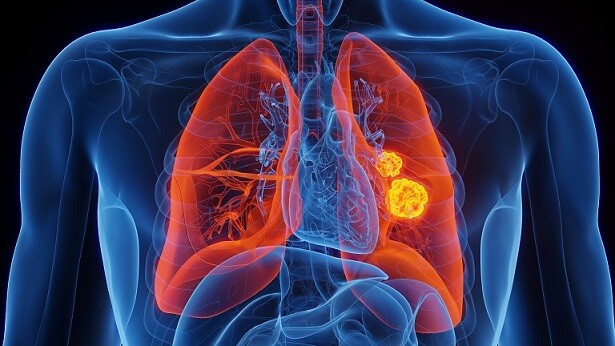Press article as published in Health Tech World, 06 June 2024
Clinithink’s AI technology, capable of reading and understanding medical records, has been used successfully by a research team at Barts Health NHS Trust to predict which patients might be at risk of lung cancer in a first-of-its-kind project funded by AstraZeneca.
Data presented at the American Society of Clinical Oncology (ASCO) congress showcased how Clinithink's AI technology has been used by the trust to build a predictive algorithm which can identify patients at a higher risk of lung cancer. The study processed over 75,000 historical patient records to build an algorithm that could predict which patients were more likely to have had lung cancer with greater accuracy than existing risk factor assessment tools used for cancer detection in the NHS.
The authors of the study believe this approach could enable the detection of some patients with lung cancer at an earlier stage of disease when it is curable, rather than later when it has already spread to other parts of the body.
Lung cancer is the UK’s biggest cancer killer with nearly 35,000 people dying from the disease each year, and has a five-year survival rate that lags behind other European countries. According to data from Cancer Research UK, lung cancer survival has shown little progress in the last 50 years in the UK. In the 1970s, fewer than 5 in 100 (3.1%) people diagnosed with lung cancer survived their disease beyond ten years. By the 2010s, it had only slightly increased to roughly 5%.
This new research provides important evidence that natural language processing and machine learning, both types of AI, could be used to flag patients at an early stage of disease – when neither they, nor their GP, know they have lung cancer, or even suspect it. The AI approach also outperformed the existing risk models used today– including the QCancer risk calculator which NHS clinicians routinely use to assess risk of lung cancer – to predict which patients might be at risk and therefore should have a chest X-ray.1 The team now plan to test the approach prospectively. If successful, this could lead to a change in the way patients with early disease are found, treated and hopefully cured.
The study used Clinithink’s AI software CLiX to analyse data on patients aged 40 and over who underwent chest X-rays at Barts Health NHS Trust. Patient information was gathered from electronic health records, a year prior to their X-ray.1 Over the 12-month observation period after the first X-ray, a total of 1,012 lung cancer diagnoses were made. This compares with an expected incidence of 1,387 of new lung cancer diagnoses based on national rates for the whole of the UK.
Dr Will Ricketts, co-author of the study and Consultant Chest Physician at Barts Health NHS Trust, says: “Lung cancer is notorious for being hard to detect in the early stages of disease but doing so makes a huge difference to our patients’ chances of survival. This exciting way of using innovative AI technology is helping solve an important clinical problem.”
David Brocklehurst, Head of Oncology, AstraZeneca UK, adds: “AI technology has the potential to enable early detection of patients at risk of lung cancer. Scaling up successful pilots such as this one is crucial to helping revolutionise UK cancer care and to accelerate earlier detection. We’re delighted to have been able to partner with Barts Health NHS Trust and Clinithink to have delivered this pilot.”
Chris Tackaberry, Co-founder at Clinithink, comments: “We have believed for some time that our technology, which analyses free text data in medical records, would improve predictive model development in healthcare. This amazing work by the team at Barts Health is an excellent demonstration of the potential power of AI-based approaches to help find patients at an earlier, more treatable stage of disease.”
The study also explored the potential economic impact of the approach, assuming the solution was used for one year and then assessing benefit over a further nine years. The authors found that the new approach could save around £389,000 in healthcare costs as well as an estimated £2.4 million in increased economic productivity as people successfully treated for lung cancer would be able to remain in the workforce for longer. This a major step considering the cost of lung cancer to the UK economy and the higher costs associated with treating patients at a later stage.
Following the initial research published today, the authors will further refine the approach and validate its effectiveness through a prospective clinical trial, with hopes for it then to be widely adopted by the NHS as part of its lung cancer diagnostic programme.
Beyond lung cancer, the success of this project holds immense promise for other cancers where early detection is critical. It could be applied to areas like pancreatic, ovarian and liver cancer, offering a powerful tool to combat these silent killers as well.
